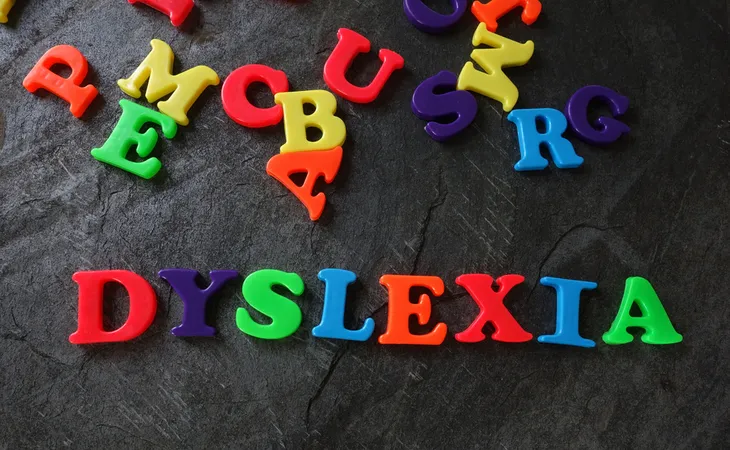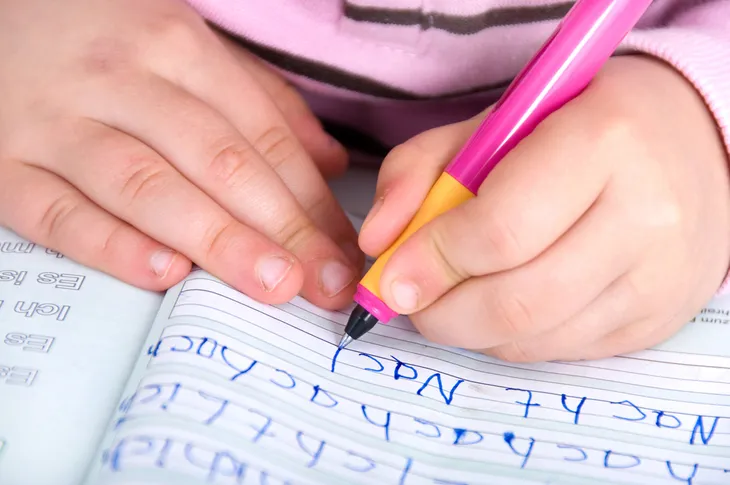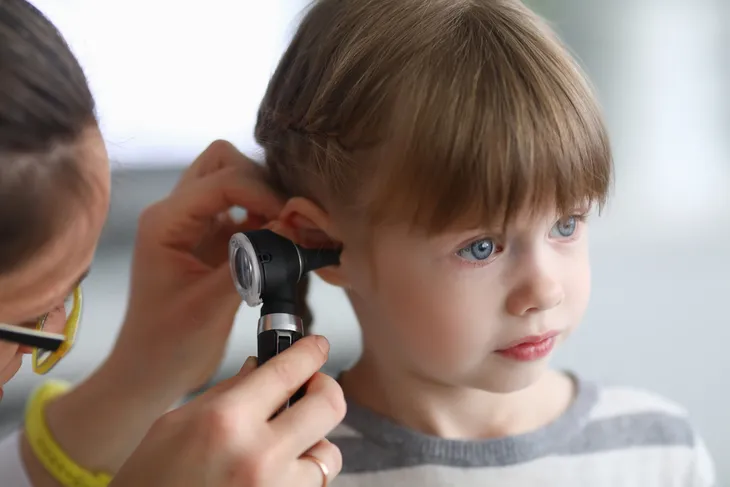- Dyslexia can be difficult to identify in young children, but there are some strong indicators to keep an eye out for.
- A few early signs of dyslexia in young children include delayed speech, struggles with rhymes, and poor reading ability, among others.
- It’s never too early to seek help if you suspect your child may have dyslexia or another learning disorder.
Dyslexia is a learning disorder that can cause difficulties with reading, writing and spelling. It is quite common, affecting approximately 1 in 10 people in the United States. Although the cause of dyslexia is unknown, it is considered to be a genetic condition that can be passed from parents to children.
The signs of dyslexia aren’t always easy to identify, especially in young children who have yet to start school. The following are ten indicators to keep an eye out for, as well as tips for managing dyslexia and when to seek help.
Delayed Speech
Compared to other children of the same age, kids with dyslexia may experience delayed speech development. This is often one of the first signs of the disorder. In some cases, Dyslexia Victoria says that the child does “not start speaking until as late as three or four years of age.”
In other cases, however, the source notes that dyslexic children can “start talking very early, at about one year of age, and even in full grammatically correct sentences.” This is often most noticeable in “their use of language and pictures, but not necessarily letters and numbers.”
Trouble Calling Things by the Right Name
According to Understood.org, dyslexia “affects the way the brain processes language.” This can make it challenging for a child to associate the correct words with objects and symbols.
As a result, they may not be able to easily recall the correct word to describe something. The source says this may lead them to use “general words like ‘thing’ and ‘stuff’ instead of the names of objects.”
Struggles with Rhymes
Nursery rhymes are typically quite fun for young children to learn and repeat, but those with dyslexia may struggle to recite them. Additionally, they may have difficulty recognizing rhyming patterns. For example, WebMD says they may “not be able to think of words that rhyme with the word ‘boy,’ such as ‘joy’ or ‘toy.’”
These difficulties are the result of them having difficulty breaking words down into individual sounds, such as buh and at when pronouncing the word ‘bat.’
Trouble Remembering Sequences
A child with dyslexia may also have trouble understanding and remembering sequences, such as the order of the alphabet, days of the week, or counting to 10. Dyslexia Victoria says this is because “they see the ‘big picture’ easily but not the individual parts.”
The child may also struggle to learn the names of colors, shapes, how to spell, and how to write his or her name, which the source says is because they “think primarily in images and not necessarily letters and numbers.”
Slow Development of Fine Motor Skills
Fine motor skills may be slow to develop in children with dyslexia. For example, WebMD says they “may take longer than others of the same age to learn how to hold a pencil in the writing position, use buttons and zippers, and brush his or her teeth.”
As they reach school age, weak fine motor skills—along with challenges memorizing sequences—can lead to difficulties with writing, which is known as dysgraphia. According to Dyslexia-Reading-Well.com, some signs to watch for include “poor pencil grip and moving the wrist or arm (gross motor skill) instead of the fingers (fine motor skill).”
Mix Up Sounds and Letters
When pronouncing long words, children with dyslexia may mix up the sounds of the syllables. For example, the NHS says they may say “hecilopter” instead of “helicopter”, or “beddy tear” instead of “teddy bear.”
They may also mix up the order of letters while reading or writing. WebMD indicates these errors can include: letter reversals such as “d” for “b”; word reversals such as “tip” for “pit”; inversions such as “m” and “w” and “u” and “n”; transpositions such as “felt” and “left”; and substitutions such as “house” and “home.”
Poor Reading Ability
Children with dyslexia have difficulty with phonemic awareness, which Dyslexia Victoria defines as “the ability to hear individual sounds in a word.” As a result, they are often slow to learn the sounds associated with each letter, causing them to have trouble sounding out new words.
WebMD says they may also struggle to read single words that are not part of a sentence, especially if they are small words such as “at” and “to,” or “does” and “goes.”
Recurring Ear Infections
Did your child struggle with recurring ear infections as an infant or when they were young? Recurring ear infections are actually quite common among young children with dyslexia.
According to Dyslexia Victoria, while the infection themselves are not often the cause of the disorder, they can contribute to a child’s issues with phonemic awareness and language difficulties. This interesting insight may explain why dyslexia is an auditory disability more than a visual one.
Late In Establishing A Dominant Hand
Does your child struggle with determining their dominant hand? Dyslexia Victoria explains that dyslexic children may be late in establishing a dominant hand. They may be as old as 7 to 9-years of age when this happens, and even still many will alternate between hands for tasks such as “eating, printing, throwing a ball or drawing with a crayon.”
Brain Balance explains that an example may be that these children write with their left hand, but use scissors with their right hand.
Commonly Mispronounce Words
Another early sign of dyslexia is a child often mispronouncing familiar words, according to Healthline. This could also present itself in the form of “baby talk” or babbling. As an example, your child may say a wrong word that sounds similar to a right one, such as “extinct” instead of “distinct.”
They may also refer to vague words such as “thing” or “stuff” rather than using the proper word to describe something. This may occur in both writing or speaking.
 Shutterstock/Evgeny Atamanenko
Shutterstock/Evgeny AtamanenkoWhen To Seek Help
It’s never too early to seek help with dyslexia. Often with children, the earlier you intervene and seek help, the better. If your child is in school or daycare, it may be best to start by consulting their teacher and ask what they’ve noticed with your child’s development. A strong indicator is if your teacher explains that your child’s reading level is below what is expecting for their age.
At this point, it may be best to consult your pediatrician. It often takes some time to provide a formal diagnosis for dyslexia and your doctor may perform a variety of tests or refer you to a specialist.
 Shutterstock/Microgen
Shutterstock/MicrogenManaging Dyslexia
There is no specific cure if diagnosed with dyslexia, but there are a wide variety of strategies that can be implemented to make daily life easier. Dyslexia effects each person differently and it can take time to figure out the specific approach that works to accommodate varying learning needs.
According to MedicalNewsToday, managing dyslexia in children will typical begin with an evaluation of these individual needs. Next, adapted learning tools may be implemented as well as counseling for ongoing guidance and support.
 Shutterstock/LightField Studios
Shutterstock/LightField Studios











